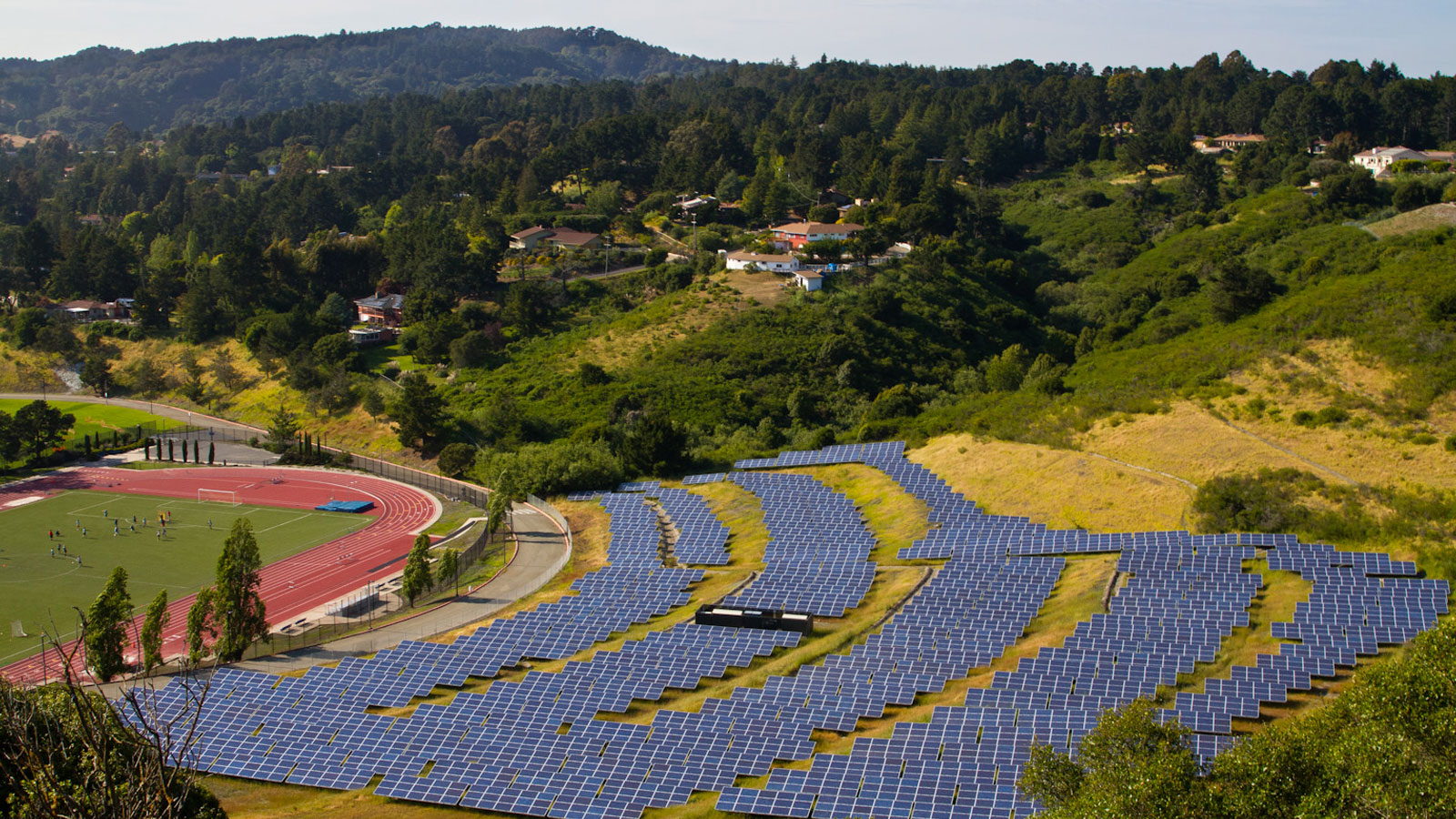To reduce global warming, the U.S. electric grid will need to run on renewables instead of fossil fuels. But relying solely on renewables will be challenging.
Marc Perez of Clean Power Research says solar energy production fluctuates by season.
“You have way more sun in the summer than in the winter,” he says. “And the demand doesn’t follow that seasonality.”
So to meet customer’s electricity needs in winter without using fossil fuels, utilities will need to rely on stored energy – for example, from batteries. But Perez says the costs can add up.
“If you go down the battery route and only rely on batteries, you start to need an incredible amount,” he says. “And that becomes very expensive.”
So Perez suggests a different approach: overbuilding solar. In other words, build so many solar farms that together, they can help meet customer needs even in winter. Doing so would greatly reduce the need for expensive batteries.
“You overbuild by 50% and you decrease your storage energy requirements tenfold,” he says.
He says the strategy would save money, even though all that solar would produce more electricity than needed in summer.
“It seems wasteful,” Perez says. “But the alternative is to overbuild the storage tenfold, and that is wasteful, in my opinion, both economically and environmentally.”
Reporting credit: ChavoBart Digital Media
Source link


